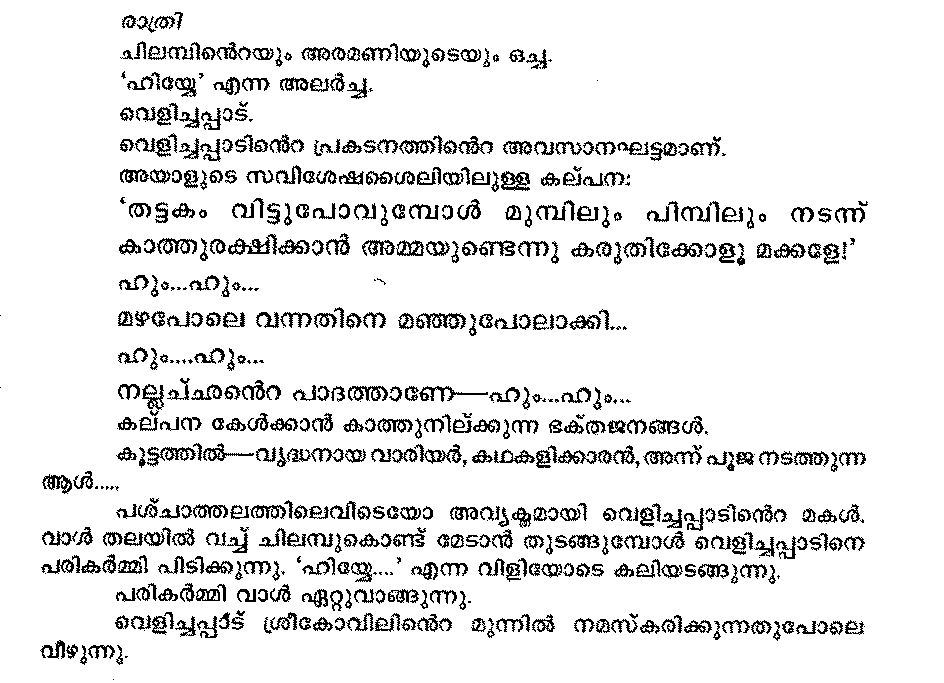Malayalam Film Script Writing Pdf

Free PDF ebooks (user's guide, manuals, sheets) about Malayalam film script writing software ready for download.
Understand what a script is. The script, or screenplay, outlines all of the elements (audio, visual, behavior, and dialogue) that are required to tell a story through movies or TV. • A script is almost never the work of a single person. Instead, it will go through revisions and rewrites, and ultimately will be interpreted by the producers, directors, and actors. • Movies and TV are visual mediums.
This means that you will need to write your script in a way that encompasses the visual and auditory aspects of the story. Focus on writing pictures and sounds. Winning Eleven 2002 English Version Isolation on this page. Outline your story. Begin with a basic flow of your narrative. Focus on the conflict of the story; conflict drives drama.
• Keep length in mind. When in script format, each page is roughly one minute of screen time. The average length of a two-hour script is 120 pages. Dramas should be around the 2 hour mark, comedies should be shorter, around one and a half hours. • Also keep in mind that unless the writer is already known, has connections, or is extremely bankable, a long screenplay doesn’t have a realistic chance of getting picked up. If the story you need to tell can’t be condensed into less than two hours of screen time, you might be better off turning it into a novel. Write your story in three acts.
The pillars of a screenplay are the Three Acts. Each act can operate independently, and when taken together provide the full arc of a story. • Act One: This is the set-up for the story. Animation Programs Free Download. Introduce the world and the characters. Set the tone of the story (comedy, action, romance, etc.).
Introduce your protagonist, and begin exploring the conflict that will drive the story. Once the protagonist is set towards the objective, then Act Two begins. For dramas, Act One is typically 30 pages. For comedies, 24 pages. • Act Two: This act is the main portion of the story. The protagonist will encounter obstacles on the path to the resolution of the conflict.
Subplots are typically introduced in the second act. Throughout the second act, the protagonist should be showing signs of change. For dramas, Act Two is typically 60 pages.
For comedies, 48 pages. • Act Three: In the third act, the story reaches its resolution. The third act contains the twist of the story, and ends with the final confrontation of the objective.
Because the story has already been established in the second act, the third act is much faster-paced and condensed. For dramas, Act Three is typically 30 pages. For comedies, 24 pages.